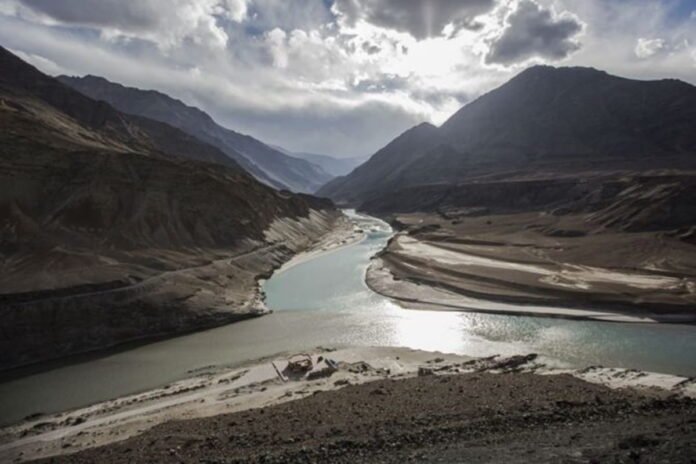Communities across Sindh and South Punjab forced to relocate as Pakistan’s lifeline, the Indus River, rapidly shrinks amid climate change, mismanagement, and regional water politics.
Pakistan is facing a mounting ecological and humanitarian crisis as the once-mighty Indus River, the lifeline of its agriculture and civilization, continues to shrink. Over 1.2 million people—primarily from water-dependent regions in Sindh and South Punjab—have been displaced due to the river’s alarming decline, experts and officials warn.
The gradual drying of the Indus, caused by glacial retreat, reduced rainfall, upstream water controls, and poor domestic water management, has led to crop failure, food insecurity, and forced migration on an unprecedented scale. Riverbanks that once nourished fields are now barren, and fishing communities are watching their livelihoods vanish.
Satellite data confirms a consistent decline in water volume over the past five years, with 2025 marking the lowest recorded flow in decades. Once-teeming irrigation canals are now dusty trails. Villages dependent on the river have reported unlivable conditions due to heat, salinity, and waterborne diseases.
Environmentalists and civil society groups are calling for immediate national and regional action. “The Indus is not just a river—it’s a question of survival,” said Dr. Fariha Ansari, a hydrologist based in Lahore. “If the current trend continues, Pakistan’s food basket regions could turn into dust bowls.”
In addition to climate impacts, water politics between Pakistan and India—as governed by the 1960 Indus Waters Treaty—have further complicated the situation. Accusations of reduced water flow from upstream sources continue to stir diplomatic tensions.
While government relief camps have been set up in districts like Thatta, Dadu, and Muzaffargarh, aid workers report that resources are stretched thin. With monsoons becoming erratic and no national water policy reform in sight, experts warn the crisis may spiral further unless bold steps are taken.
“The Indus is dying—and with it, so are the hopes of millions,” said environmental activist Zubair Rind. “It’s time to treat this not just as a local issue, but a national emergency.”





















